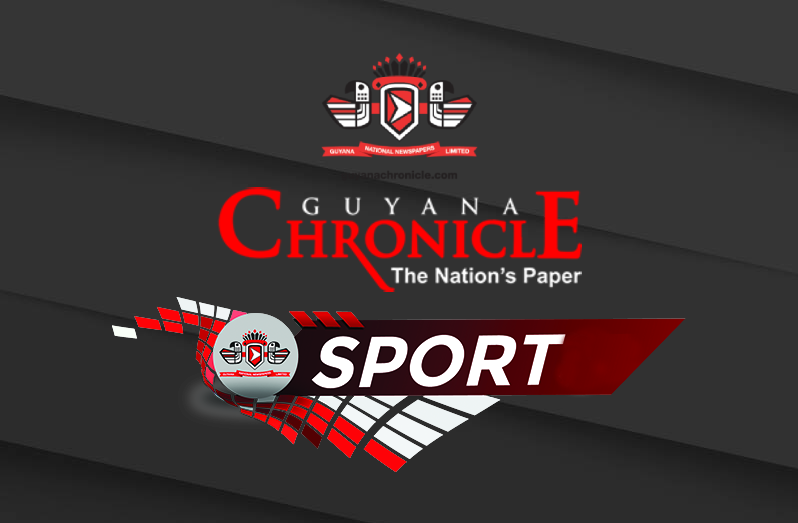THE Albion Community Sport Complex ground holds the distinction of being the first venue in Guyana where One-Day International (ODI) cricket was played, with a match between the West Indies and Pakistan in 1977. Yesterday, the Ministry of Sport inked a US$250 000 contract with world renowned lighting company ‘Musco Lighting’, which will see the historic venue being permanently lit for the first time in its existence.
“This would not only enhance cricket, but other nightly activities,” Sport Minister Dr Frank Anthony told the gathering of media personnel and officials of the ministry including Permanent Secretary Alfred King.
He went on to state that with the lights, promoters of the sport of cricket and the administration would incur less expense since they would not have to seek external lighting.
“These lights would change the dynamics of the game in Berbice. More and more persons are interested in only 20/20 cricket; it’s more popular these days and night activities are becoming more prevalent in hosting these matches. And what fitting time to have it! March 16 marks 36 years since the first International game was played at the venue,” Dr Anthony said.
April 17, 1984, West Indies (259-5) defeated New Zealand (129 all out) by 130 to mark the last time international cricket was played at the venue.
Musco Lighting is the contracting firm used by the government to install the lights at the Guyana National Stadium in 2007 when the Caribbean hosted the ICC Cricket World Cup for the first time and Guyana hosted the Super-8 round of matches.
Bryan McNulty, the company’s Assistant Director of International Sales, said that they are excited about the installation of the lights at Albion; a project which is estimated to last for approximately six months.
At the contract signing, McNulty displayed the layout of how the lights would be affixed to the world famous venue and said that the company, which also did work at the London Olympics, is not expected to face any difficulty in the installation especially given the fact that the facility is smaller than grounds they have worked on in the West Indies.
McNulty’s words were echoed by Brad Chelesvig, who pointed out that Musco Lighting did not just pick up their rating based on work, but based on the quality produced, having been around since 1976 and working along with the Olympic Games since 1984.
Meanwhile, according to King, “We don’t see this taking longer than six months because these guys know what they are about. They have already done their studies, so now it’s time to just work with the local contractors when the materials that we have ordered arrive and we’ll have lights,” (Rawle Toney)
“This would not only enhance cricket, but other nightly activities,” Sport Minister Dr Frank Anthony told the gathering of media personnel and officials of the ministry including Permanent Secretary Alfred King.
He went on to state that with the lights, promoters of the sport of cricket and the administration would incur less expense since they would not have to seek external lighting.
“These lights would change the dynamics of the game in Berbice. More and more persons are interested in only 20/20 cricket; it’s more popular these days and night activities are becoming more prevalent in hosting these matches. And what fitting time to have it! March 16 marks 36 years since the first International game was played at the venue,” Dr Anthony said.
April 17, 1984, West Indies (259-5) defeated New Zealand (129 all out) by 130 to mark the last time international cricket was played at the venue.
Musco Lighting is the contracting firm used by the government to install the lights at the Guyana National Stadium in 2007 when the Caribbean hosted the ICC Cricket World Cup for the first time and Guyana hosted the Super-8 round of matches.
Bryan McNulty, the company’s Assistant Director of International Sales, said that they are excited about the installation of the lights at Albion; a project which is estimated to last for approximately six months.
At the contract signing, McNulty displayed the layout of how the lights would be affixed to the world famous venue and said that the company, which also did work at the London Olympics, is not expected to face any difficulty in the installation especially given the fact that the facility is smaller than grounds they have worked on in the West Indies.
McNulty’s words were echoed by Brad Chelesvig, who pointed out that Musco Lighting did not just pick up their rating based on work, but based on the quality produced, having been around since 1976 and working along with the Olympic Games since 1984.
Meanwhile, according to King, “We don’t see this taking longer than six months because these guys know what they are about. They have already done their studies, so now it’s time to just work with the local contractors when the materials that we have ordered arrive and we’ll have lights,” (Rawle Toney)



.jpg)










